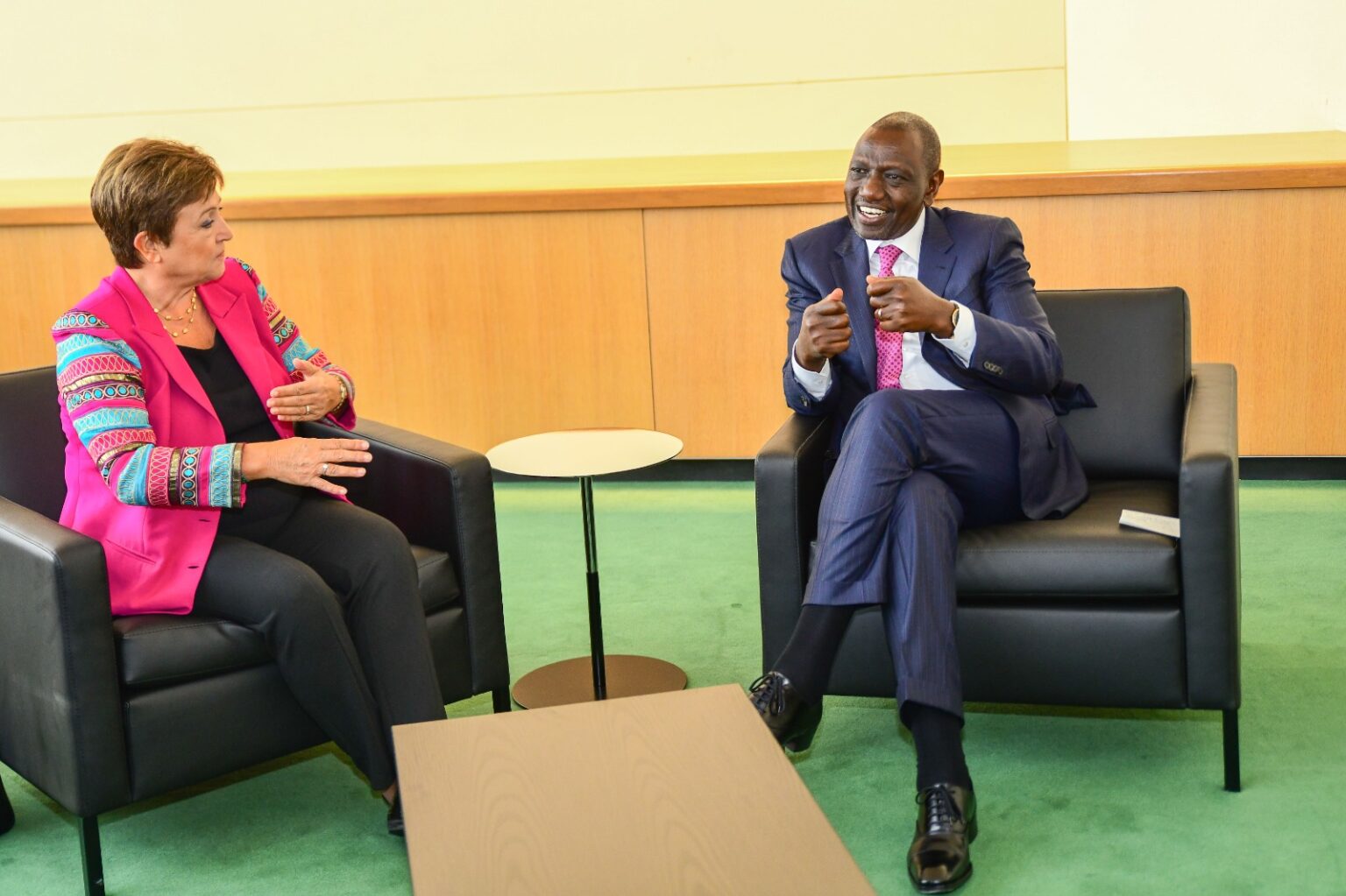- President Ruto calls for reforms in the IMF to address emerging global challenges and seeks flexible lending instruments, equitable special drawing rights, and debt financing plans.
- He also advocates for governance reforms to better represent the Global South’s economic and demographic contributions.
- These changes are crucial for maintaining the IMF’s relevance and effectiveness in fostering stability and sustainable development.
In a rapidly evolving global economy, the International Monetary Fund (IMF) finds itself at a critical moment as President William Ruto of Kenya articulates in the latest issue of the IMF’s Finance and Development Magazine. With over eight decades of history, the IMF’s journey from supporting the gold standard to promoting flexible exchange rates and development financing mirrors the dynamic changes in the global financial architecture.
President Ruto says that the IMF has to adapt once again, highlighting four key areas for reform: lending instruments, special drawing rights (SDRs), addressing debt distress, and governance reforms.
The evolution of the IMF and the need for reform
Since its inception at the Bretton Woods conference in 1944, the IMF has been critical in maintaining global macroeconomic and financial stability. Initially focused on fixed exchange rates, the IMF’s role has shifted dramatically following the collapse of the gold standard.
Today, the institution supports 190 member countries, with its largest regional group being Africa’s 54 members. The IMF’s current portfolio stands at $112 billion across 90 countries, but this figure is skewed by the substantial allocation of Argentina, Egypt, and Ukraine. Excluding these top three borrowers, the average support per country dips massively, highlighting the need for a more equitable financial distribution, notes Dr Ruto.
If a modern Bretton Woods conference were convened, it would undoubtedly focus on development and climate chance, areas where the global financial system has been notably underfunded and insufficient.
The Kenyan leader notes that recent global summits have highlighted these deficiencies, particularly in the context of the Global South’s rising economic importance.
President Ruto points out that sub-Saharan Africa is poised to double its share of the global workforce by 2050, making the reform of multilateral financial institutions crucial for addressing issues such as climate vulnerability and economic fragility.
Read also: IMF forced to reckon with struggling African economies
Lending instruments: President Ruto calls for flexibility
One of the central themes in President Ruto’s commentary is the need to decouple IMF lending from the restrictive quota systems that currently govern it. The “exceptional access policy” not only imposes stringent conditions but also punitive surcharges, reflecting an outdated approach.
Today’s global challenges—ranging from climate-induced disasters to pandemics—require a more flexible financial toolkit. Ruto advocates for the unbundling of lending instruments, allowing each to have relevant eligibility criteria tailored to specific needs.
For instance, the Resilience and Sustainability Facility (RSF) is a positive step towards recognizing climate change as a driver of economic instability. However, its accessibility is limited to countries already under an IMF program, excluding those with sound economic management who wish to build resilience against climate impacts. This highlights the necessity for standalone facilities that can address specific challenges without being tied to broader economic programs.
Special drawing rights: a more equitable distribution
SDRs are another critical area where President Ruto sees room for improvement. The allocation of SDRs has hostorically favoured developed economies, with the 2021 allocation seeing only 2.4 percent going to low-income countries and 5.2 percent to the entire African continent.
In stark contrast, developed economies received 64 percent of the allocation. While wealthier nations have pledged to redirect $100 billion in SDRs to vulnerable countries, the slow deployment of these funds illustrates the inefficiencies within the current system.
To rectify this imbalance, Dr Ruto suggests that the issuance of SDRs should be reformed to better support low-income countries, providing them with a robust financial safety net. This would not only enhance global economic stability but also ensure that the IMF’s resources are used where they are most needed.
Addressing debt distress
The developing world is facing a debt crisis reminiscent of the conditions that led to the Highly Indebted Poor Countries initiative in the 1990s. Sovereign defaults have surged, with 10 countries experiencing defaults in the past three years—more than the total in the previous two decades. Emerging market economies are also facing distress, with bond yield spreads rising dramatically since 2020.
President Ruto calls for comprehensive debt refinancing programs akin to the Brady Plan of the 1980s, which successfully addressed the Latin American debt crisis. Such initiatives are crucial for providing debt relief and supporting sustainable development in vulnerable countries. By adopting a proactive approach to debt management, the IMF can help mitigate the economic instability that threatens developing nations, Dr Ruto asserts.
Governance reforms
Perhaps the most significant reform proposed by President Ruto is in the realm of governance. The current voting rights within international financial institutions do not reflect the economic and demographic realities of today. The Global South, which accounts for half of the global GDP and 80 percent of the world’s population, remains underrepresented in decision-making processes.
Dr Ruto argues for more equitable representation, drawing on corporate governance principles that emphasize fairness and independence. By realigning voting rights to better reflect the contributions of the Global South, the IMF can ensure more balanced and inclusive governance. This shift is not only a matter of fairness but also a strategic necessity for maintaining the institution’s relevance and effectiveness.
